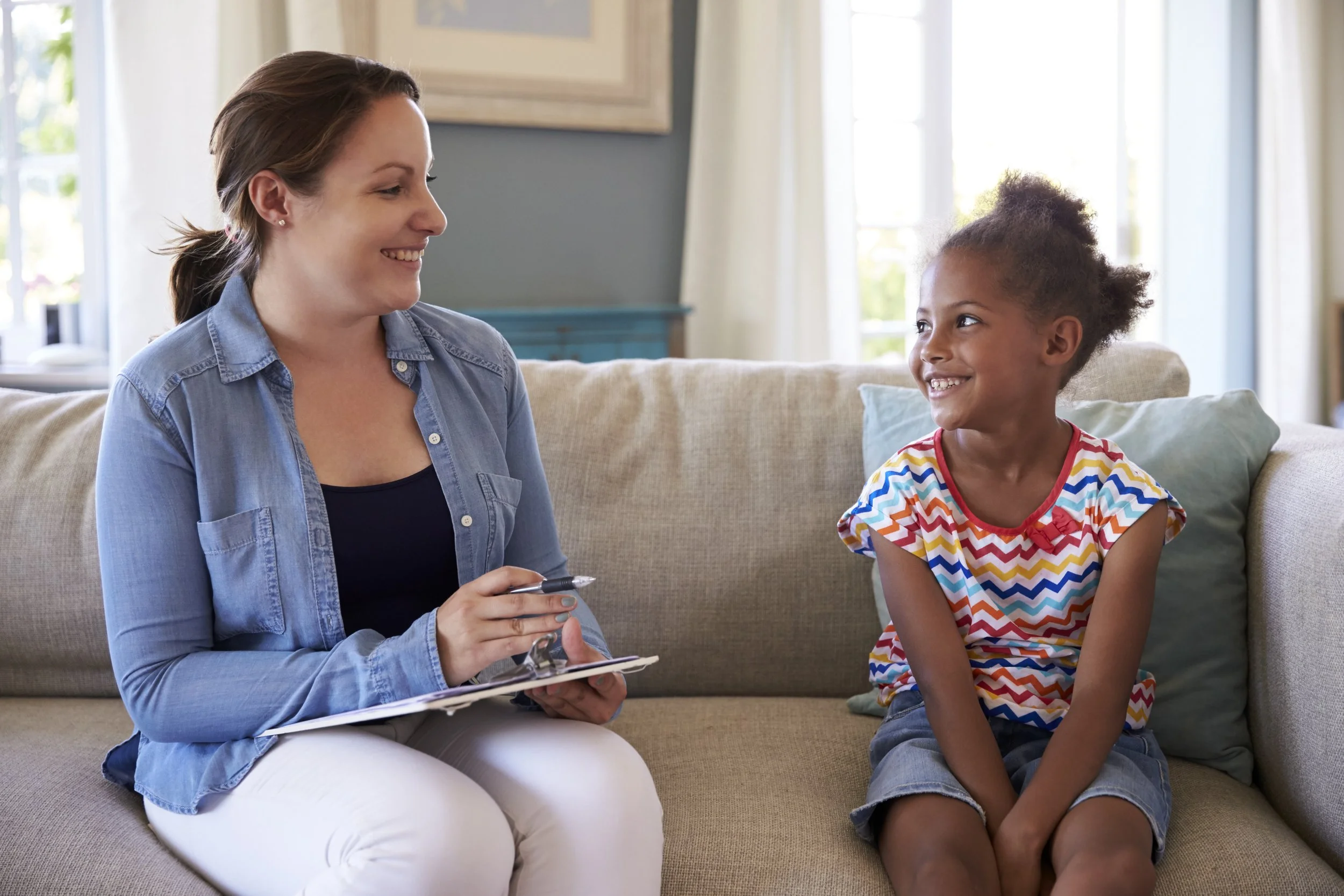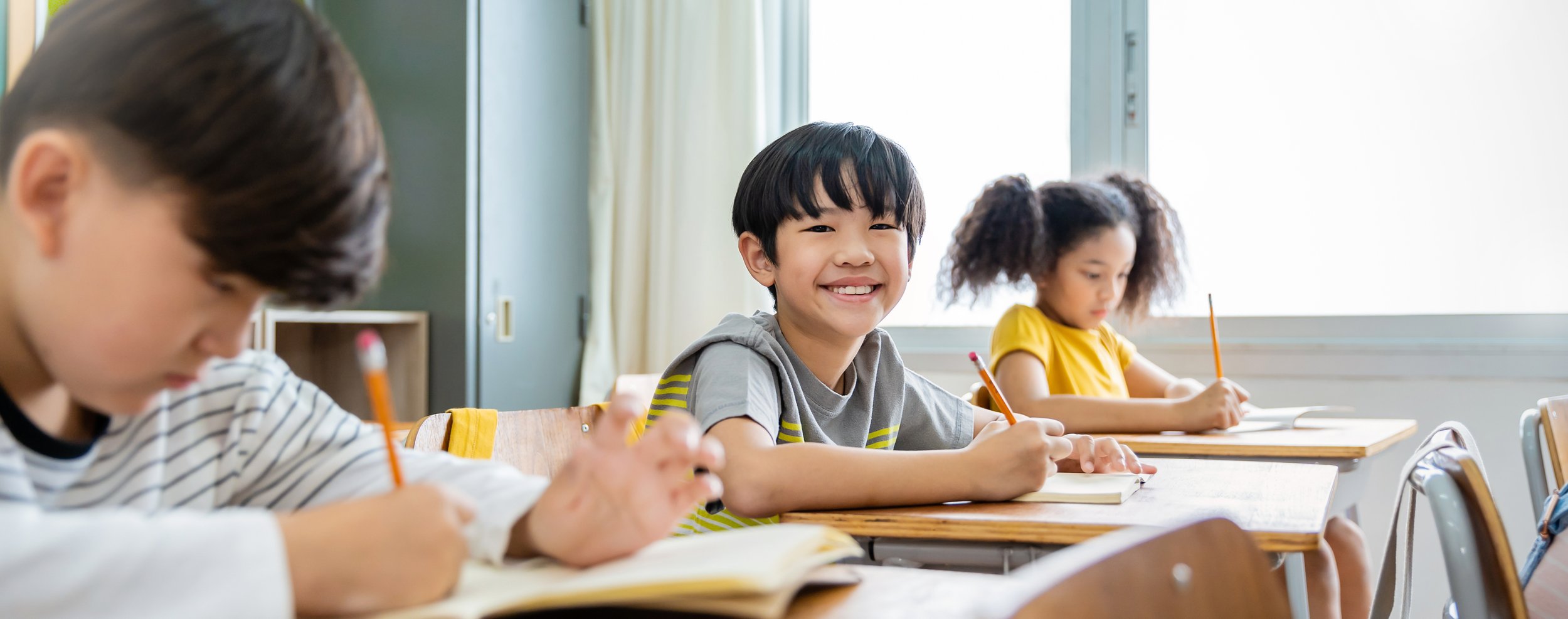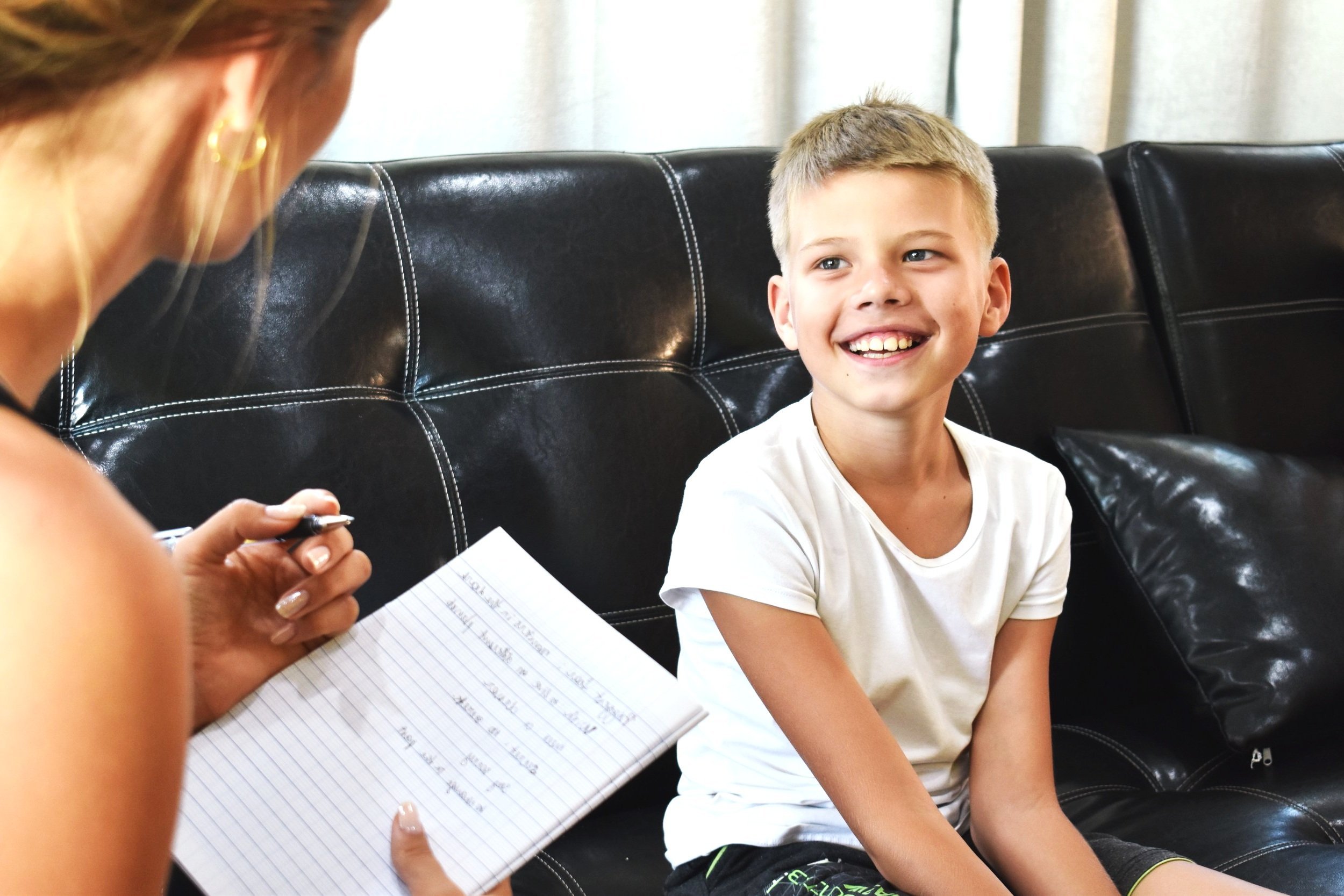
Counselling for Young Children
Child counselling is a form of therapy that specifically focuses on young children under 12 who are experiencing stressors in the home or school environment. In many cases, children absorb and mimic mental health issues observed in the adults and teenagers of the home including anxiety, depression, stress, and grief. Our team specializes in assessing mental health issues and providing caring treatment tailored for children.
How is Child Counselling Different?
Young children require a different approach to counselling than teenagers or adults. This is because children process information differently and often struggle to verbalize difficult memories, feelings, emotions, and beliefs. A child psychologist uses a variety of approaches including cognitive behavioural therapy, behaviour therapy, or therapy incorporating play and art to help children express and manage their thoughts, feelings and memories by breaking them down into smaller parts that are easy to understand. Therapy has been shown to provide children with lifelong coping strategies, improved communication, better emotional regulation, and a stronger sense of self.
Common Mental Health Issues in Children
Anxiety disorders (generalized anxiety, social anxiety, performance anxiety, and panic disorders)
Depression and grief
Attention deficit hyperactivity disorder (ADHD)
Obsessive compulsive disorder (OCD)
Eating disorders
Conduct disorder
Behavioural issues
Autism spectrum disorder (ASD)
Oppositional defiant disorder (ODD)
School issues (bullying or learning disabilities)
Common Signs of Distress in Children
Since children can’t effectively verbalize their struggles and feelings, it is important for parents, caregivers, and teachers to notice behavioural changes in children. Below are a list of common signs that your child may be experiencing complicated feelings, but is unable to accurately express them to the adults around them.
-

Persistent Sadness
If you have noticed that your child has been sad for more than 2 weeks, they may be trying to process difficult feelings or experiences.
-

Social Withdrawal
Children experiencing emotional distress tend to withdraw from or avoid social interactions with family, friends, classmates and teachers.
-

Angry Outbursts
Children sometimes struggle to express how they are feeling which may manifest as serious tantrums, irritability and angry outbursts.
-

Mood Changes
If you are noticing drastic changes in moods and behaviours in your young child, it may be a sign that they are struggling with a difficult issue.
-

Changes in Eating Habits
Children who are experiencing emotional distress may keep asking for more food or refrain from eating at all.
-

Weight Changes
Similar to the change in eating habits, weight loss or weight gain is often observed in children who are experience mental health issues.
-

Sleep Problems
Negative emotions, stress, and anxiety cause children to be unable to sleep peacefully, and in some cases cause nightmares.
-

Physical Symptoms
Emotional distress can sometimes cause physiological symptoms such as headaches, stomach aches, nausea, and heartburn.
-

Poor Concentration
A child in emotional distress may appear distracted, unfocused and have an overall difficulty concentrating on homework, play time, or reading.
-

Dropping Grades
Academic performance is often negatively impacted by a child’s emotions state and directly associated with reduced focus.
-

Increased Aggression
Although it is normal for young children to hit parents or peers, increased aggression is often observed in children with emotional distress.
-

Loss of Interest
A common symptom of depression, a child may experience a loss of interest in activities they used to enjoy like play time, video games, or reading.
Mental Health Issues in Boys vs Girls
Boys and girls often present different signs and symptoms of mental health issues, which is why it is important for parents, teachers and counsellors to be aware of those differences. Conditions such as autism spectrum disorder (ASD), attention deficit hyperactivity disorder (ADHD), conduct disorder, oppositional defiant disorder (ODD), anxiety and even depression appear differently in boys as opposed to girls.
Research has shown that boys are more likely to show externalized symptoms such as impulsivity, physical aggression, emotional outbursts, self-harm, anger, and hyperactivity. Girls, on the other hand, are usually more aware of social expectations and tend to mask and internalize their symptoms so as to not be noticed. Therefore, signs of mental health issues in girls often present as social withdrawal, anxiety, eating disorders, verbal aggression, and poor academic performance. As a result of these differences, mental health issues are discovered in boys at a much higher rate than girls.
Assessments and Treatment Options
Psychological Assessments for Children
We provide psychological assessments for children of all ages, including:
Psycho-educational assessments
Gifted assessments
Attention deficit hyperactivity disorder assessments
Autism spectrum disorder assessments
Social-emotional assessments
Treatment Approaches
-

Cognitive Behavioural Therapy (CBT)
Cognitive behavioural therapy is an effective treatment approach that helps children challenge unhelpful thoughts, feelings and beliefs about themselves and others while developing healthy coping mechanisms that help them throughout their life.
-

Acceptance & Commitment Therapy (ACT)
Acceptance and commitment therapy (ACT) uses mindfulness and acceptance techniques to try to help children identify, understand and accept difficult thoughts and feelings. It has been shown to effectively treat anxiety, depression, and stress.
-

School Consultation
Our team of child psychologists work with teachers, school counsellors and other support staff to plan a cohesive strategy that focuses on building a child’s strength, overcoming difficulties, and providing comprehensive support in the classroom.
Parental Guidance and Training
Parental involvement is essential when it comes to a child’s mental health treatment, especially when working with very young children. The most effective approach to helping a child is to provide their parents with effective strategies and training to improve their ability to help the child at home, which is best achieved during joint child-parent counselling sessions. We also provide individual coaching sessions for parents that focus on strengthening the parent-child relationship, improving communication and encouraging positive and respectful interactions.
Academics and School Consultations
Feeling understood, empowered and supported in school is essential for the mental health and wellbeing of a child. Aside from providing psycho-educational and gifted assessments for children, we also partner with schools, educators and support staff to ensure that they have all the necessary information and guidance needed to effectively encourage your child’s strengths while compassionately working with them to overcome difficulties.
We work with teachers, school counsellors and other support staff to develop positive behaviour support plans at school, initiate school meetings to share assessment results with teachers and administration, and conduct school observations to gather information to support teachers with behaviour support plans as well as collecting further observational data for assessments.

Resources for Children
-
Kid's Help Line
Kids Help Line is Canada’s only 24/7 e-mental health service offering free, confidential support to young people. No issue is too big or too small.
Text (686868), message or call (1-800-668-6868) for support.
-
Calgary Distress Centre
Distress Centre Calgary (DCC) provides 24 hour crisis support, professional counselling, youth peer support and referrals.
Call the Distress Centre at 403-266-HELP (4357)




